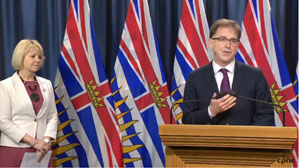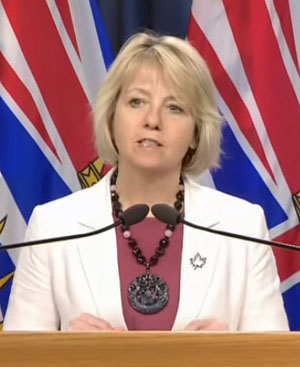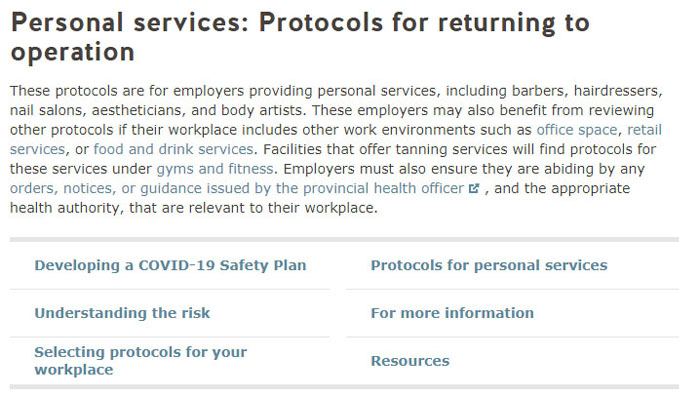
Tuesday June 30, 2020 ~ VICTORIA, BC
by Meaghan Power ~ West Shore Voice News | Editor: Mary Brooke, B.Sc.
An easing of restrictions on visitors to long-term care homes in BC was a long-awaited announcement that came today.
Health Minister Adrian Dix and Provincial Health Officer Dr Bonnie Henry made this announcement now in the early days of Phase 3 of BC’s economic recovery as more people are out and about in communities. Loved ones in care homes have had almost no visits from families since mid-March when pandemic restrictions began, so this is a good time to open up social opportunities for seniors as well.
Minister Dix started by outlining the original decision to limit visitors in long-term care facilities and assisted living facilities to essential visits only due to the COVID-19 pandemic. He said there’s a need for people in long term care to have visits from their families and loved ones. He explained that these institutions are “not only about extending life but living life” with family and friends by their side.

Dr. Henry followed up by acknowledging the emotional and mental cost of these limitations on the vulnerable population and their families and that despite her efforts, many families have lost parents and grandparents from COVID-19 in care homes without being able to visit. She said she felt public health “moved quickly and decisively”.
“British Columbians have flattened the curve, single-site staffing is in place and facilities have been given the additional resources to safely allow for seniors and elders who have been separated from their loved ones to connect once again,” the Provincial Health Officer said. That includes appropriate levels of supply of personal protective equipment (PPE).
The easing of restrictions for visits (a bit during Phase 2 and now more so in Phase 3) comes at a time when there are a low number of cases currently in BC. There are now just five current outbreaks in long-term care facilities and assisted living facilities.
Restrictions to the new visiting policy:
Within a week to 10 days — once the provisions are in place — long-term care residents and assisted living residents will be allowed one visitor in a designated area. But there are several restrictions to this new policy.
The facility must not have a current outbreak of COVID-19, and the five outbreaks that are currently facing the virus will not implement the policy until they are clear. Each facility must have a written safety plan, and designated staff to screen everybody upon entry. Visitors will be required to wear a mask with the guidance of staff members, and they will need to book in advance.

Dr. Henry insists that if a visitor is not feeling well, or is starting to show any symptoms, that they cancel their booking immediately. Personal service providers, such as hairstylists, will be allowed in on the condition that they complete a safety plan that aligns with the WorkSafeBC guidelines.
For people in assisted living, who are generally not as frail, they will be given more freedom to have visits outside but will need to follow all precautions. For residents of long term care, Dr. Henry encourages that outings are limited for the meantime to essential services, such as medical appointments.
For now, residents will be able to have a single designated visitor in a single designated area. “Access will be expanded beyond that, as soon as it’s safe to do so,” said Dr Henry.
Dr Henry believes that this new freedom for visits and outings is necessary at this stage to maximize the quality of life for the residents of these facilities. She said that virtual visits do not compare to face-to-face interactions.
Use of masks:
As for the use of masks, will she mandate that? Dr Henry sticks to her premise that mandating masks across the economy and communities is not necessary at this time. However, if people are out in public and in a small or confined space (such as buses, small stores, and airplanes) the use of a non-medical mask is strongly recommended.
Looking ahead for long-term care:
In terms of the new long term care and assisted living policy, if cases are at a minimum and things are going well, she will look at easing the restrictions even further in August. She estimates that this will be in place for about 12 months.
Dix commented on the additional support available for long-term care and assisted living facilities, where they will be able to hire three additional workers as full-time equivalent staff for being in charge of visiting organization and infection control.


